 January 6. Epiphany – Kings Day – Dia de Reis.
January 6. Epiphany – Kings Day – Dia de Reis.
In Portugal the day to eat Bolo Rei, a ring-shaped cake with a small hidden surprise inside. Also, the day to put all Christmas decorations away. In neighbouring Spain, the presents under the Christmas tree will only then be unpacked as it were the three kings, who brought gifts for the new-born Christ.
On January 6 the Orthodox Christians celebrate the birth of Jesus as they follow the Julian calendar (introduced by the Roman emperor Julius Cesar in 45 BC), instead of the Gregorian one ( proclaimed by Pope Gregorius XIII in the late 16th century), nowadays used in most countries.
 Who were those gift-bearing ‘wise men’ – otherwise known as the ‘three kings’ or the ‘magi’ – and where did they come from?
Who were those gift-bearing ‘wise men’ – otherwise known as the ‘three kings’ or the ‘magi’ – and where did they come from?
The Bible tells us very little. Their story appears only once in the Gospel of Matthew (2:11), where they are described as ‘strangers from the East’ who come looking for the child whose star they observed ‘at its rising.’
An 8th-century monk from Monkwearmouth in north-east England – St Bede de Venerable – described the magi as follows. ‘The first was called Melchior, king of Persia, an old man with white hair and a long beard who offered gold to the new-born king of the Jews. The second, Caspar, king of India, was young and beardless. He presented to the child his gift of incense, a homage to his divinity. The third, of black complexion and with a heavy beard, was called Balthasar, king of Arabia. The myrrh – also used for embalming – he held in his hands, foreshadowed the death of Jesus.
 According to other sources dating back to medieval times, the visitors were mystics from a mysterious land called Shir. Descendants of Seth, the righteous third son of Adam, and the guardians of an age-old prophecy, that a star of indescribable brightness would someday appear ‘heralding the birth of God in human form.’
According to other sources dating back to medieval times, the visitors were mystics from a mysterious land called Shir. Descendants of Seth, the righteous third son of Adam, and the guardians of an age-old prophecy, that a star of indescribable brightness would someday appear ‘heralding the birth of God in human form.’
When the long-awaited star appears, it is not simply ‘sighted at its rising’ – as described in Matthew – but rather descends to earth, instructing the magi to travel to Judea and guiding them along their journey.
 Finally, inside a cave on the outskirts of Bethlehem, the star reappears to them as a luminous human child – the Christ child! There, the men kneel down and present the baby Jesus with their three famous gifts – gold, incense, and myrrh. Tradition has it, that in later years they were baptized, became bishops and spent the rest of their lives spreading Christianity in distant lands.
Finally, inside a cave on the outskirts of Bethlehem, the star reappears to them as a luminous human child – the Christ child! There, the men kneel down and present the baby Jesus with their three famous gifts – gold, incense, and myrrh. Tradition has it, that in later years they were baptized, became bishops and spent the rest of their lives spreading Christianity in distant lands.
Bom fim de semana Enjoy the weekend

 Five years after the peak of its economic crisis, Portugal’s future looks bright. There is more confidence, more consumption and there are more young people in college.
Five years after the peak of its economic crisis, Portugal’s future looks bright. There is more confidence, more consumption and there are more young people in college.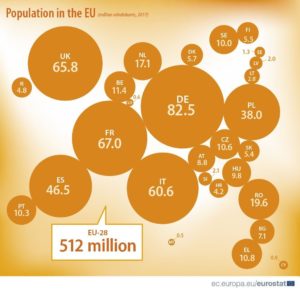
 The country’s workforce is relatively
The country’s workforce is relatively 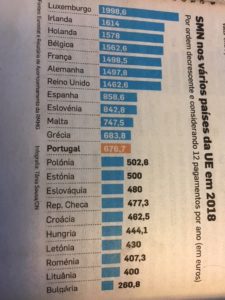

 Last May, Joao Rodriguez – a 95% physically restricted and wheelchair dependent quadriplegic from Figueira da Foz – was happy his brother could bring him to Lisbon, to attend the nationwide
Last May, Joao Rodriguez – a 95% physically restricted and wheelchair dependent quadriplegic from Figueira da Foz – was happy his brother could bring him to Lisbon, to attend the nationwide  Eduardo Jorge – quadriplegic, bedridden since age 28 and living in a nursing home – requires continuous care for 24 hours a day. He owns a house and wants to be cared for at home, but doubts if he will get there the 24/7 support, he desperately needs. He demonstrated last week outside
Eduardo Jorge – quadriplegic, bedridden since age 28 and living in a nursing home – requires continuous care for 24 hours a day. He owns a house and wants to be cared for at home, but doubts if he will get there the 24/7 support, he desperately needs. He demonstrated last week outside  The intention of the government is to subsidize each centre with
The intention of the government is to subsidize each centre with  In addition to a greater autonomy, pressure groups demand more jobs and better accessibility of public buildings and
In addition to a greater autonomy, pressure groups demand more jobs and better accessibility of public buildings and  The Trade Union Association of Portuguese Judges (ASJP) declared in an open letter to the Minister of Justice this year, that at least 55
The Trade Union Association of Portuguese Judges (ASJP) declared in an open letter to the Minister of Justice this year, that at least 55 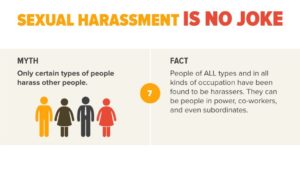
 ‘As long as our society maintains its patriarchal and male chauvinist features, aggression against women is legitimized’, says Elisabeth Brasil of the Assassinated Women’s Observatory (OMA), accusing the government of not providing the necessary support to the victims of
‘As long as our society maintains its patriarchal and male chauvinist features, aggression against women is legitimized’, says Elisabeth Brasil of the Assassinated Women’s Observatory (OMA), accusing the government of not providing the necessary support to the victims of  The legal system doesn’t seem to be very woman-friendly either and courts often continue to disclaim the perpetrators and hold the victims accountable. Only
The legal system doesn’t seem to be very woman-friendly either and courts often continue to disclaim the perpetrators and hold the victims accountable. Only  In the meantime, the government becomes convinced that the legislation on sexual crimes needs to be reviewed in the light of the
In the meantime, the government becomes convinced that the legislation on sexual crimes needs to be reviewed in the light of the  But not only the Portuguese legislation is inadequate on women abuse, maintaining a culture of blaming the victim and perpetuate impunity.
But not only the Portuguese legislation is inadequate on women abuse, maintaining a culture of blaming the victim and perpetuate impunity.  Earlier on tens of thousands of visitors invaded the Altice Arena at the
Earlier on tens of thousands of visitors invaded the Altice Arena at the  ‘This project is a first in Portugal’, say Cristina Pena and João Brochado – the couple that organizes the event – in the newspaper Público. ‘We want to emphasize a positive approach in the rearing of dogs instead of an aversive approximation. We often come across training methods based on punishment and negative reinforcement, leading to aggressiveness and anxiety in the dog.’
‘This project is a first in Portugal’, say Cristina Pena and João Brochado – the couple that organizes the event – in the newspaper Público. ‘We want to emphasize a positive approach in the rearing of dogs instead of an aversive approximation. We often come across training methods based on punishment and negative reinforcement, leading to aggressiveness and anxiety in the dog.’ Therefore, much attention will be given to training methods that respect the
Therefore, much attention will be given to training methods that respect the 
 The event – created to connect technology with industry – is the global stage for conducting business, recruiting talent and promoting brands.
The event – created to connect technology with industry – is the global stage for conducting business, recruiting talent and promoting brands. Since the two previous editions yielded 300 million euro annually on accommodation and transport, government persuaded the organization to maintain the Websummit in Lisbon over the next ten years – until 2028 – and is willing to invest therefor 11 million euros per year.
Since the two previous editions yielded 300 million euro annually on accommodation and transport, government persuaded the organization to maintain the Websummit in Lisbon over the next ten years – until 2028 – and is willing to invest therefor 11 million euros per year. The Portuguese Hotel and Restaurant Association (
The Portuguese Hotel and Restaurant Association (
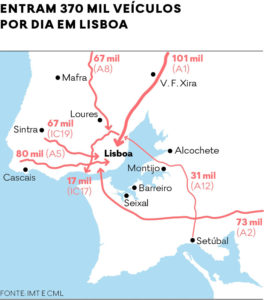
 These large numbers of automobiles not only provoke endless traffic jams in the center but also severe air pollution.
These large numbers of automobiles not only provoke endless traffic jams in the center but also severe air pollution.  The solution to reducing the use of cars seems straightforward: create alternatives! With this in mind, Fernando Medina, Lisbon’s mayor, advocates a radical reduction in the cost of public transport (metro, bus), extend the number of bus lanes in the metropole and –by means of state funding – enable a free bus
The solution to reducing the use of cars seems straightforward: create alternatives! With this in mind, Fernando Medina, Lisbon’s mayor, advocates a radical reduction in the cost of public transport (metro, bus), extend the number of bus lanes in the metropole and –by means of state funding – enable a free bus  But the government should do much more. Only 15% of public transport in Portugal is subsidized, compared to 50% in the EU. Moreover,
But the government should do much more. Only 15% of public transport in Portugal is subsidized, compared to 50% in the EU. Moreover, 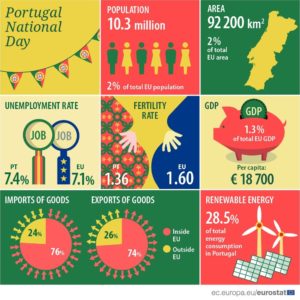 If you are what you eat (drink, smoke) or love (males, females, yourself), then countries certainly aren’t the same. There are after all innumerous appetites and lifestyles. For example, health club membership is twice as high in Spain and three times higher in Denmark.
If you are what you eat (drink, smoke) or love (males, females, yourself), then countries certainly aren’t the same. There are after all innumerous appetites and lifestyles. For example, health club membership is twice as high in Spain and three times higher in Denmark. Portuguese people take 4744 steps a day, far less than the Chinese in Hong Kong or even their Spanish neighbours. Two-thirds are not physically
Portuguese people take 4744 steps a day, far less than the Chinese in Hong Kong or even their Spanish neighbours. Two-thirds are not physically  Portuguese adore cars – one in every two owns one – and use them every day. For everything: commuting, shopping, and outings. Unfortunately, these motorists hardly ever use public transport and are keen to make
Portuguese adore cars – one in every two owns one – and use them every day. For everything: commuting, shopping, and outings. Unfortunately, these motorists hardly ever use public transport and are keen to make 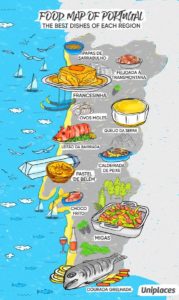 Apparently not. Portuguese people love their culture and are– besides Fado, Football, and Fatima – fond of grilled sardines, Pessoa, Saramago, sunny weather and popular saints. They also
Apparently not. Portuguese people love their culture and are– besides Fado, Football, and Fatima – fond of grilled sardines, Pessoa, Saramago, sunny weather and popular saints. They also  The most stunning, however – at least according to the Observer – are the eyes of their men. Wherever you are in the world, you should look at their
The most stunning, however – at least according to the Observer – are the eyes of their men. Wherever you are in the world, you should look at their 
 Popular pork
Popular pork  In ancient Egypt, the pig was considered sacred and offered to the Moon, the Greeks honoured the goddess Porca and the Romans feasted on roasted piglets with honey.
In ancient Egypt, the pig was considered sacred and offered to the Moon, the Greeks honoured the goddess Porca and the Romans feasted on roasted piglets with honey. Pig production in Europe is concentrated in a few countries. Denmark has the highest number of pigs per inhabitant, Portugal ten times less.
Pig production in Europe is concentrated in a few countries. Denmark has the highest number of pigs per inhabitant, Portugal ten times less.